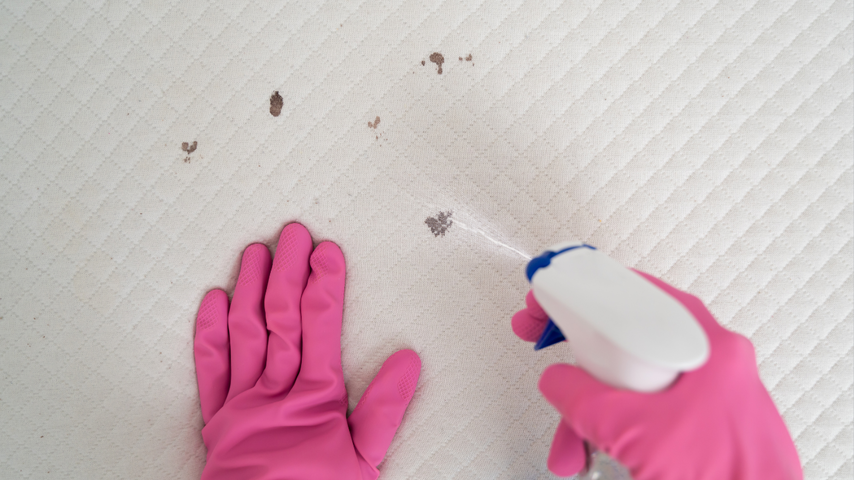What is HMPV and What are the 7 Symptoms?
Human Metapneumovirus (HMPV) is a respiratory virus often causing mild cold symptoms but can lead to severe illness in infants, the elderly, and those with weakened immune systems. Most people are exposed by age five. Understanding its symptoms and impact is crucial for managing the virus and preventing complications. Here’s what you need to know to stay informed and protect yourself and loved ones.
Human Metapneumovirus (HMPV) is a respiratory virus often causing mild cold symptoms but can lead to severe illness in infants, the elderly, and those with weakened immune systems. Most people are exposed by age five. Understanding its symptoms and impact is crucial for managing the virus and preventing complications. Here’s what you need to know to stay informed and protect yourself and loved ones.
Causes of Human Metapneumovirus (HMPV)
HMPV belongs to the Paramyxoviridae family and was first documented in 2001. This respiratory virus accounts for a range of illnesses, particularly affecting infants, the elderly, and immunocompromised individuals. Transmission occurs primarily through respiratory droplets when an infected person coughs or sneezes, highlighting its contagious nature.
The most vulnerable populations include infants younger than five years, seniors, and those with weakened immune systems, such as individuals undergoing chemotherapy or suffering from chronic health conditions. Furthermore, HMPV cases typically surge between late fall and early spring, coinciding with the seasonal patterns of respiratory viruses.

Common Symptoms of Human Metapneumovirus (HMPV)
HMPV can present a variety of symptoms, many of which mimic those found in other respiratory infections. Here are the seven common symptoms that individuals should monitor:
1. Cough: A persistent and often dry cough may develop as the virus irritates the respiratory passages.
2. Fever: Mild to moderate fever is common as the body reacts to the infection, but high fevers are less typical.
3. Nasal Congestion: Excess mucus can clog nasal passages, causing discomfort and making breathing difficult, especially during sleep.
4. Sore Throat: Inflammation from the virus can lead to throat irritation and pain, often exacerbated by postnasal drip.
5. Wheezing: This includes a high-pitched sound during breathing, indicating narrowing of the airways.
6. Fatigue: A general sense of tiredness or weakness often accompanies HMPV, as the body uses energy to combat the virus.
7. Shortness of Breath: In more severe instances, particularly for those with pre-existing lung ailments, breathing difficulty can arise and necessitate immediate medical attention.
Diagnosis and Tests for HMPV
The diagnosis of HMPV relies primarily on molecular and antigen-based testing methods. The polymerase chain reaction (PCR) test is the most accurate, detecting the virus's genetic material in respiratory specimens such as nasal swabs or sputum samples. PCR tests are known for their high sensitivity and specificity, making them essential for confirming HMPV infections swiftly.
Management and Treatment of HMPV
The management of Human Metapneumovirus (HMPV) primarily emphasizes symptomatic relief. Patients are encouraged to maintain hydration and may find relief using over-the-counter medications like acetaminophen or ibuprofen to reduce fever and alleviate discomfort. Hospitalization becomes necessary in severe cases, particularly in vulnerable populations, where close monitoring and supportive care are critical.
Currently, there are no specific antiviral drugs approved for HMPV treatment, though investigational therapies may be considered for patients suffering severe disease or having additional health conditions. Regular assessments by medical professionals are essential for effectively managing the condition over time.
Prevention of HMPV Infection
Preventing the spread of Human Metapneumovirus (HMPV) requires a commitment to good hygiene practices. Regular handwashing with soap and water for a minimum of 20 seconds is fundamental, especially after coughing, sneezing, or touching communal surfaces. Using hand sanitizers that contain at least 60% alcohol is also recommended to lower the chances of virus transmission. Avoiding close contact with individuals showing respiratory illness symptoms is crucial, particularly during peak outbreak periods.
Although there is no specific vaccine for HMPV at this time, remaining informed about vaccine advancement is important. Parents and caregivers should ensure that children receive necessary immunizations to build a broader defense against respiratory infections.
HMPV vs COVID-19: Differences and Similarities
While Human Metapneumovirus (HMPV) and COVID-19 share overlapping respiratory symptoms—such as cough, fever, and breathing difficulties—they possess distinct characteristics. HMPV typically results in milder symptoms that are more akin to a common cold, whereas COVID-19 may escalate to severe pneumonia or have lasting consequences.
Transmission dynamics also differ slightly; HMPV spreads predominantly through respiratory droplets during close contact, similar to COVID-19, although the latter can also be airborne, posing an increased risk of surface contamination.

FAQs about Human Metapneumovirus (HMPV)
1. Can you get HMPV twice?
Yes, reinfection with HMPV can occur, as immunity post-infection may not be long-lasting.
2. How long does it take to recover from HMPV?
Recovery typically ranges from 1 to 3 weeks, depending on symptom severity and individual health conditions.
3. What are the complications of human metapneumovirus?
Complications can include bronchiolitis, pneumonia, and exacerbation of chronic lung diseases.
4. Do you need antibiotics for human metapneumovirus?
Antibiotics are ineffective against HMPV, as it is a viral infection. Treatment focuses on managing symptoms.
5. How do I take care of myself if I have HMPV?
Prioritize rest, stay hydrated, and consider over-the-counter medications to manage symptoms.
6. When should I see my healthcare provider?
Seek medical advice if you experience worsening symptoms, significant difficulty breathing, or prolonged high fever.
7. How serious is the metapneumovirus?
While HMPV can produce serious respiratory illnesses in at-risk groups, many individuals experience milder conditions.
8. How long are you contagious with HMPV?
Individuals are generally contagious for approximately 5 to 10 days after symptoms appear.
9. Is HMPV like a cold?
Yes, HMPV can lead to cold-like symptoms, but it may also cause more significant respiratory issues, particularly in vulnerable populations.







